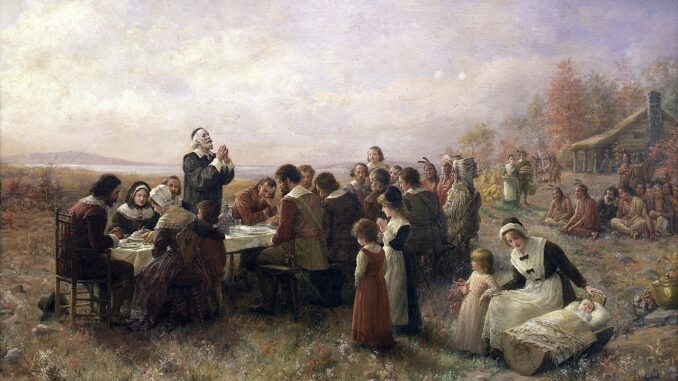
Johnson Oatman Jr.’s hymn “Count Your Blessings,” set to music by E.O. Excell, is a timeless reminder of gratitude. Born in 1856 in New Jersey, Oatman was an ordained minister who also worked in business with his father. He began writing hymns in 1892, with his first song — “I Am Walking with My Saviour” — published a year later. His prolific hymn-writing career produced over 3,000 hymns, making his work a staple in hymnbooks to this day.
According to the 1914 Biography of Gospel Song and Hymn Writers, Oatman’s “Count Your Blessings” emerged in 1897, published in the collection “Songs for Young People” by the Methodist Episcopal Church. The hymn became an instant classic, illuminating the simple but profound practice of recognizing one’s blessings as an antidote to life’s discouragements. The song’s popularity, particularly in England, underscored its universal appeal, as it was sung in various settings from street corners to sanctuaries.
The lyrics of “Count Your Blessings” resonate with scriptural themes and are interwoven with Biblical references. The first verse encourages the believer to reflect on the multitude of blessings granted by God even through discouraging or difficult times. The second verse addresses the burdens of life, alluding to Matthew 16:24 where Jesus speaks of taking up one’s cross, suggesting that in acknowledging blessings, one finds strength to endure hardships.
In the third verse, Oatman points to the promises of Christ, echoing the Sermon on the Mount, particularly Matthew 5:12, where Jesus speaks of the great reward awaiting believers in heaven. The verse underscores the ephemeral nature of earthly wealth compared to the eternal riches in Christ. The final verse offers comfort, reflecting the assurance found in Hebrews 1:14 of angelic presence and support throughout life’s trials.
“Count Your Blessings” aligns perfectly with this week of Thanksgiving—a time set aside to reflect on and give thanks for the bountiful gifts of life. Oatman’s hymn encourages believers to maintain a perspective of gratitude regardless of life’s tumultuous “billows.” It’s familiar tune is a call for Christians to live in a state of thankfulness, recognizing the divine hand in every aspect of life.
This article includes information from “Biography of Gospel Song and Hymn Writers” by J.H. Hall (1914) which is in the Public Domain.



